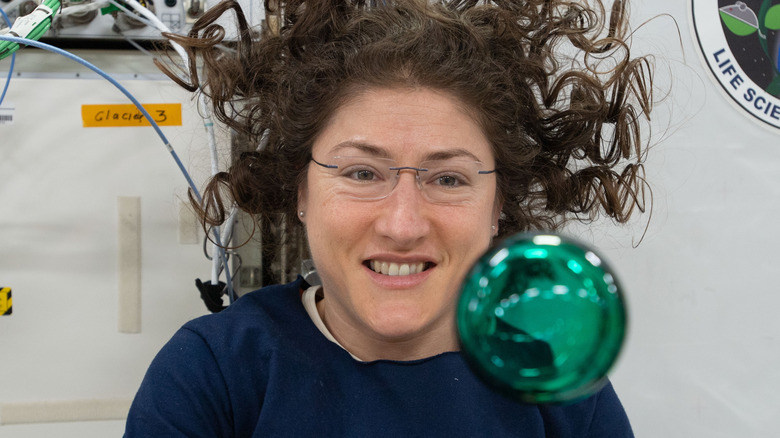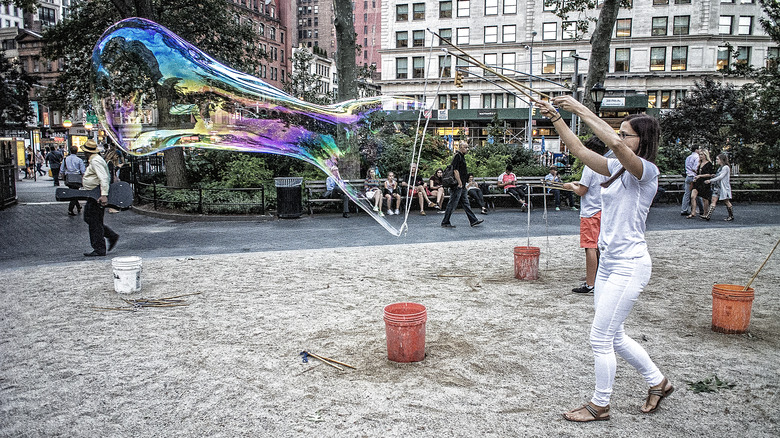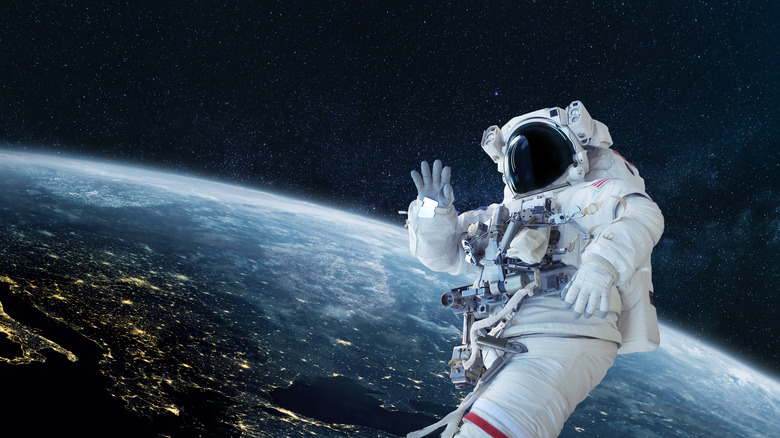What Would Happen If You Tried To Blow Bubbles In Space?
The art of blowing bubbles is a fun pastime of many people — no matter your age. There are quite a number of things people tend to do with them, like bubble blowing contests. And, for those that enjoy them as fun entertainment, there are even ideal soap recipes for making better bubbles.
Another thing that humans have an endless fascination with is the vast universe, which seems to have an endless number of secrets. So, the obvious next question is: What would happen if you tried to blow a bubble in space? The answer is a bit more complicated than one would think. As explained by Science Focus, there's interesting science behind how bubbles tend to behave, and what the vacuum of space might do to them.
But first, a few things should be known about both bubbles and space. A look into the nature of their properties will reveal why bubbles react very differently on Earth, inside a spacecraft, or in the lonely emptiness of the universe.
How the properties of bubbles and space work
Like most things in life, the properties of bubbles are subject to the laws of physics and chemistry. Bubbles are a mixture of both chemical and physical behavior and the reactions therein. And likewise, with space, interesting behavior also occurs within its vacuum.
The common bubble — such as bathtub bubbles — usually come from a soapy water solution. The water and soap interact molecularly to create a thin, iridescent layer, that reduces water's natural surface tension, as explained by Scientific American.
Surface tension affects many things but can be best described as the process of water molecules constantly tugging each other, creating a chain-like tension that allows them to stick together. This is how water droplets can remain as orbs and not fall apart until met with adequate force. With bubbles, detergent lowers the surface tension, expands the space between the water molcules, and creates floaty orbs.
Space is mostly empty of matter — though not truly empty — which gives the universe an incredibly low pressure resulting in a vacuum. This is caused by objects in space attracting each other via gravity, creating large clumps of matter, and so the space between that matter turns into a vacuum (via Live Science). These vacuum conditions will affect how bubbles work in space.
Blowing bubbles in space would not go as you'd think
So, how do these properties explain what happens with blowing bubbles in space? According to Science Focus, bubbles need air surrounding their outside, so as to push back on the soap film. But without that, a bubble blown in space would burst in a flash.
What about bubbles inside of spacecraft? Unlike in the vacuum of space, this is actually quite possible and would behave almost like their counterparts back on Earth. Why? Because the same air on Earth would also exist inside of a spaceship, which means that bubbles will mostly behave the same way, even if gravitational forces are drastically reduced.
There are some small differences, however, such as spacecraft bubbles tending to stay in one spot a bit longer. This is because the reduced gravity would stop the soap on the bubble's membrane from falling to the bottom of the sphere and thus thinning the top part of the bubble — as it happens on Earth.


